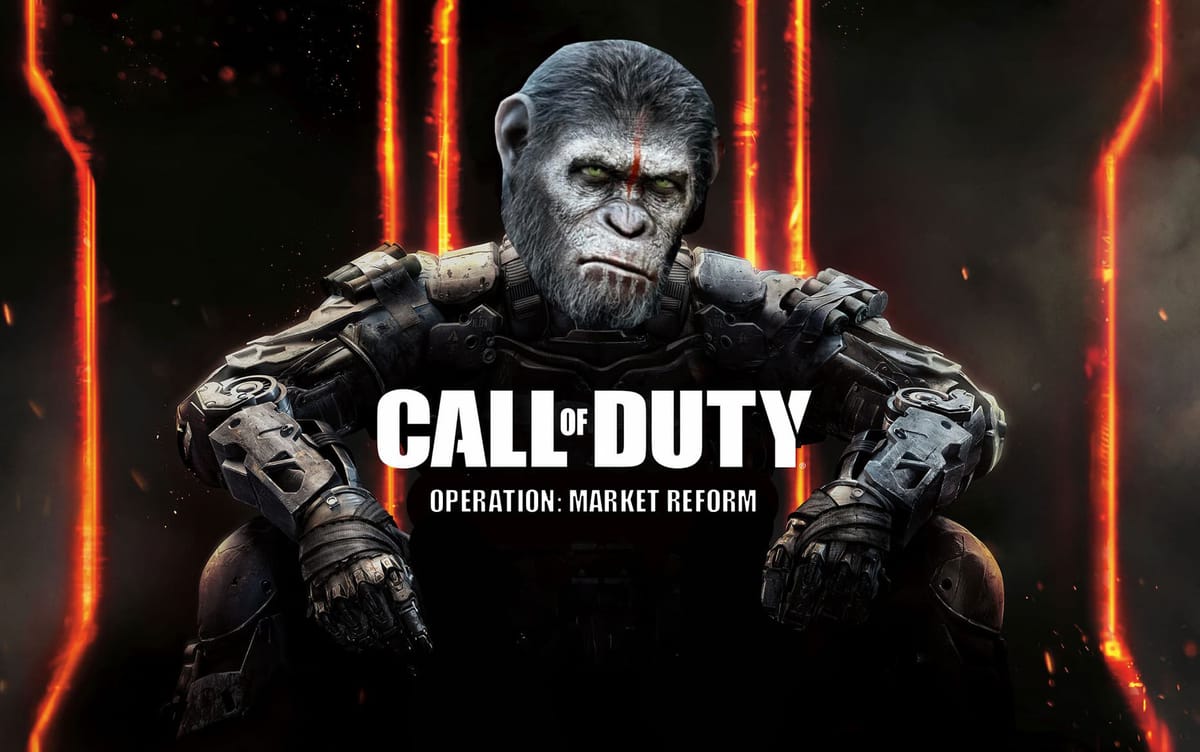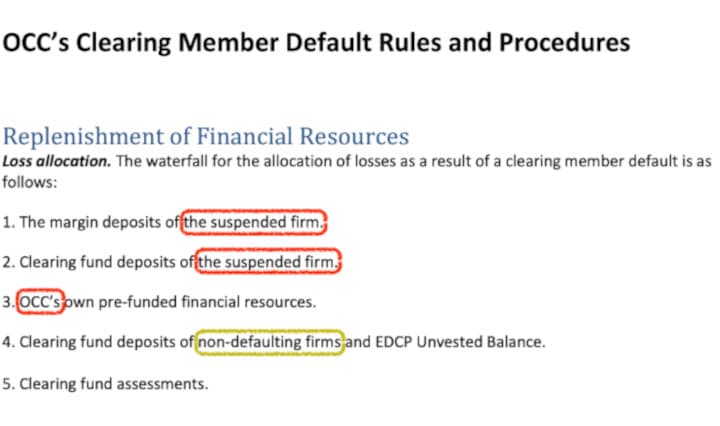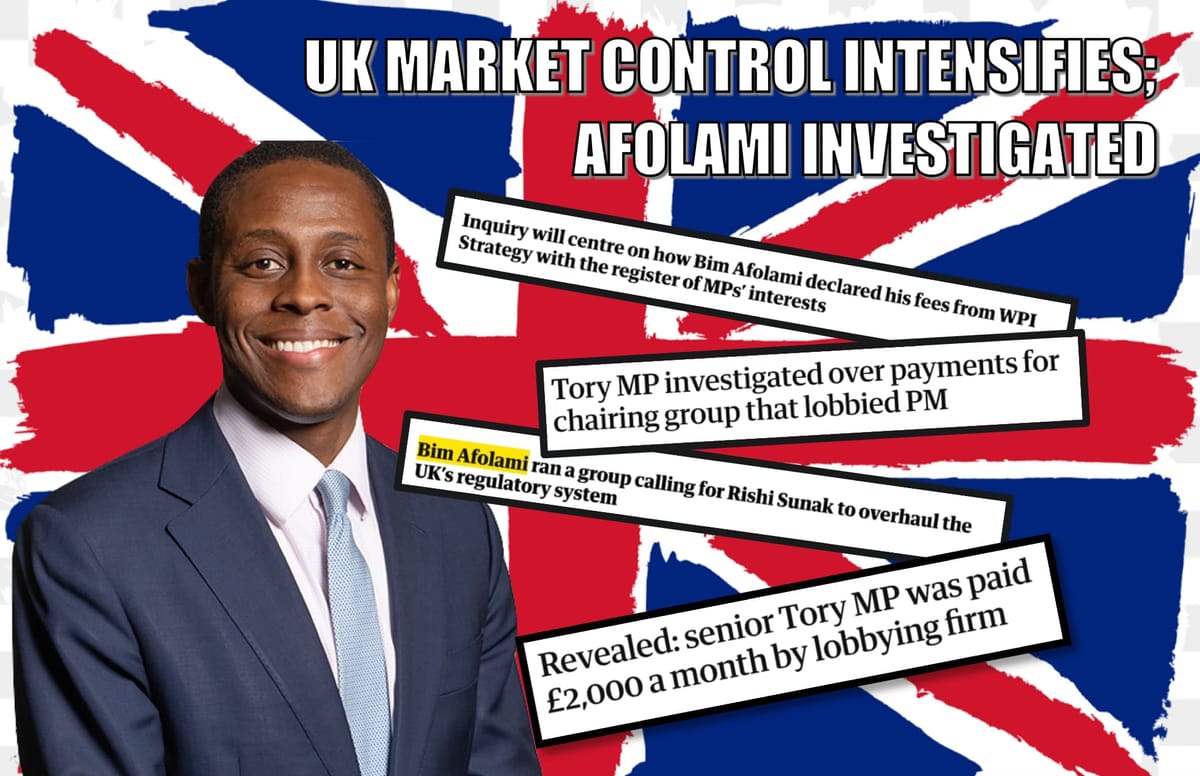FINRA 'Discipline' Alert! Nomura's Misclassification of Reverse Repos Leads to Overstatement of Net Capital by Up to $1.95 Billion. 21 Inaccurate FOCUS Reports Filed. Penalty? Without admitting or denying anything, a censure and $125,000 fine.
Nomura was defaulting January 2021 b/c of GameStop

Source: https://www.finra.org/sites/default/files/fda_documents/2021071932301%20Nomura%20Securities%20International%2C%20Inc.%20CRD%204297%20AWC%20lp%20%282023-1676247599239%29.pdf
Good evening Superstonk, neighborhood jellyfish back with you one more time before I hit my post limit for the day.
I would like to share some more FINRA 'discipline' with y'all, this time it's Nomura .
Yes, that Nomura...
As these releases convey a ton of information I am going to try and follow the same recent approach, I hope this format makes sense.
- I am going to outline what Nomura did from points from the filing.
- I am going to pull the rules they broke and attempt to provide wut mean definitions
- I am going to try and break each section against Nomura down a bit further.
- I will talk about the penalty leveled.
- I will talk about how the no good, bad, nefarious behavior could impact GameStop.
- Lastly, as always, TLDRS.

Let's hit it!What Nomura did (without admitting or denying):
Between June 2019 and March 2021 Nomura made errors in how it calculated its net capital.
- They incorrectly classified certain reverse repurchase agreements (reverse repos) with their corporate affiliate as allowable assets.
- Because the securities involved in these reverse repos were held in an account by the affiliate, they shouldn't have been classified as allowable assets for Nomura's net capital calculations.
- This misclassification led to significant decreases in Nomura's excess net capital, ranging from about $183,000 to nearly $2 billion.
The misclassification also inflated Nomura's tentative net capital calculations, leading to inaccuracies in its Customer Reserve Formula.
- This resulted in the firm failing to take required concentration charges on three dates during the relevant period, amounting to hundreds of millions of dollars.
- Nomura's inaccurate net capital calculations led to the firm filing 21 FOCUS Reports that inaccurately reported the firm's excess net capital, violating more sections of the Exchange Act and FINRA rules.
- Lastly, Nomura failed to establish and maintain supervisory systems and procedures, including written supervisory procedures (WSPs), that were reasonably designed to ensure the accuracy of its net capital calculations.The Rules Nomura Broke:





Wut Mean?:
The principal (like the SEC) has set up some rules to make sure all trades are fair and no one ends up losing their lunch money. One of these rules is that every kid (broker-dealer) must have a certain number of cards (net capital) in their collection at all times. This is to make sure that they can always trade and won't suddenly run out of cards.
- Now, some kids come up with a clever idea called a "reverse trade" (reverse repo). In a reverse trade, a kid agrees to trade a card to a friend (the counterparty), but also agrees to trade back for the same card later, usually for a little extra something, like a piece of gum.
- The principal says that's okay, but there's a catch. The card that's being reverse traded can only count towards the kid's collection (as an allowable asset) if it's still in their possession or if they have control over it. If the card is in the friend's possession or control, it can't count towards the kid's collection. This is to make sure that the kid can't claim they have more cards than they really do.
- If a kid doesn't follow these rules, they're not just breaking the principal's rules about trading (Exchange Act § 15(c) and Exchange Act Rule 15c3-1), they're also not being fair and honorable, which is against the school's code of conduct (FINRA Rule 2010).
The Exchange Act § 15(c) and Exchange Act Rule 15c3-3(e) require broker-dealers (think of them as the kids in our school trading baseball cards) that receive customer funds or securities (like getting a new pack of baseball cards from their parents) to open and maintain a "Special Reserve Bank Account for the Exclusive Benefit of Customers" (let's call this their "special card box").
- This special card box (Customer Reserve Account) must have a certain minimum number of cards (deposits of cash or qualified securities) in it. The number of cards that need to be in the box is calculated using a formula (the Customer Reserve Formula).
- The rules also say that the kids (broker-dealers) need to count the cards in their special box (perform weekly computations) every week to make sure they have the right number of cards (amount deposited) in there.
- If a kid doesn't follow these rules, they're not just breaking the principal's rules about trading (Exchange Act § 15(c) and Exchange Act Rule 15c3-3), they're also not being fair and honorable, which is against the school's code of conduct (FINRA Rule 2010).
The Exchange Act § 17(a) and Exchange Act Rule 17a-5(a) require broker-dealers (think of them as the kids in our school trading baseball cards) that clear transactions or carry customer accounts (like being responsible for keeping track of who has which cards) to file monthly Financial and Operational Combined Uniform Single (FOCUS) reports. You can think of these as monthly trading logs or diaries where they write down certain accounting and financial information (like how many cards they traded, received, or lost).
- If a kid doesn't follow these rules, they're not just breaking the principal's rules about trading (Exchange Act § 17(a) and Exchange Act Rule 17a-5), they're also not being fair and honorable, which is against the school's code of conduct (FINRA Rule 2010).
FINRA Rule 4511 requires FINRA members (think of them as the kids in our school trading baseball cards) to keep track of their trades and collections (make and preserve books and records) in line with Exchange Act § 17(a) and Exchange Act Rule 17a-3.
- Exchange Act Rule 17a-3(a)(11) requires the kids (broker-dealers) to keep an up-to-date record (like a trading diary), among other things, of their card balances (money balances of all ledger accounts) in the form of trial balances (a list of all cards they have) and a record of the computation of aggregate indebtedness and net capital (how many cards they owe and how many they have), as of the trial balance date (the date they made the list).
- Implicit in this rule is that the kids' trading diaries (firm's books and records) must be accurate. If they say they have a rare card when they don't, that's not allowed.
- If a kid doesn't follow these rules, they're not just breaking the principal's rules about trading (Exchange Act § 17(a), Exchange Act Rule 17a-3, and FINRA Rule 4511), they're also not being fair and honorable, which is against the school's code of conduct (FINRA Rule 2010).
FINRA Rule 3110(a) requires each FINRA member (think of them as the kids in our school trading baseball cards) to set up and maintain a system, including written procedures (like a set of trading rules), that is reasonably designed to supervise the activities of its associated persons (like their friends they trade with) and to achieve compliance with applicable securities laws and regulations and applicable FINRA Rules (the principal's rules about trading).
- FINRA Rule 3110(b) requires each kid (FINRA member) to establish, maintain, and enforce written procedures (their own set of trading rules) to supervise the types of business in which it engages (the types of cards they trade) and the activities of its associated persons (their friends) that are reasonably designed to achieve compliance with applicable securities laws and regulations and applicable FINRA Rules (the principal's rules).
- If a kid doesn't follow these rules, they're not just breaking the principal's rules about trading (FINRA Rule 3110), they're also not being fair and honorable, which is against the school's code of conduct (FINRA Rule 2010).Nomura failed to accurately calculate its net capital:

Wut mean?:

- Nomura, the firm, purchases Japanese Government Bonds (JGBs) from its affiliate, NSC.
- NSC agrees to repurchase these JGBs from Nomura overnight.
- The JGBs are held in a segregated account in NSC's name at the Bank of Japan.
- Nomura, however, misclassifies these reverse repos as allowable assets in its net capital computations, when they should have been classified as non-allowable assets because they were under NSC's custody and control.
- As a result, Nomura overstated its net capital and excess net capital ranging from approximately $183,000 to approximately $1.95 billion.Nomura failed to accurately calculate its Customer Reserve Formula:

Wut Mean?
- Nomura (think of it as a kid in our school trading baseball cards) did 91 weekly checks (Customer Reserve Formula computations) to see how many cards they had compared to what they owed others. However, because the firm didn't calculate their net capital (how many cards they had) correctly, three of these checks were done inaccurately.
- This happened because Nomura didn't take into account a rule that says if the value of a customer's margin account (the cards a friend has given them to trade on their behalf) exceeds 25% of the firm's tentative net capital (the cards they think they have), they need to take an undue concentration charge (a penalty for having too many cards from one friend).
- Because Nomura miscalculated their net capital, they ended up thinking they had more cards than they actually did, which caused them to miss the times when a friend's cards made up more than 25% of their total cards. As a result, they didn't take the penalty they should have when calculating their Customer Reserve Formula on February 12, 2021 (about $152 million), February 26, 2021 (about $458 million), and March 5, 2021 (about $461 million).Nomura filed inaccurate FOCUS Reports:

Wut mean?
- Nomura (our kid trading baseball cards) submitted 21 reports (FOCUS reports) to the school principal (FINRA), but these reports were not accurate. This happened because Nomura made a mistake in classifying the reverse repos (the cards they got from their friend NSC to trade overnight) and as a result, they didn't calculate their net capital (the total number of cards they had) correctly.
- Specifically, Nomura didn't report the value of the reverse repos (the cards from NSC) as non-allowable assets (cards they couldn't count as their own). On top of that, the firm also reported having more cards (excess net capital) than they actually did in these FOCUS reports.
- Because of these mistakes, Nomura broke some rules set by the school principal (FINRA) and the school district (Exchange Act). These rules are known as Exchange Act § l 7(a), Exchange Act Rule l 7a-5, and FINRA Rule 2010.Nomura failed to maintain accurate books and records:

Wut mean?
- Nomura (our kid trading baseball cards) didn't keep accurate records (like a notebook detailing all their trades) because they didn't calculate their net capital (the total number of cards they had) and Customer Reserve Formula (a weekly check of how many cards they had compared to what they owed others) correctly.
- Because of these mistakes, Nomura broke some rules set by the school principal (FINRA) and the school district (Exchange Act). These rules are known as Exchange Act § l 7(a), Exchange Act Rule 17a-3, and FINRA Rules 4511 and 2010.Nomura failed to reasonably supervise its net capital calculation:

Wut mean?:
- Nomura didn't have a good system in place to make sure they were following the rules set by the school principal (FINRA) and the school district (Exchange Act). Specifically, they didn't have a good way to check if the cards they got from their friend NSC to trade overnight were actually in their possession or if they were still with NSC (custodial arrangements).
- Because of this, Nomura didn't have enough information to correctly classify these reverse repos (the cards from NSC) as non-allowable assets (cards they couldn't count as their own) in their net capital (the total number of cards they had) and Customer Reserve Formula (a weekly check of how many cards they had compared to what they owed others) calculations.
- Nomura was relying on an automated system to figure out if the reverse repos should be counted as their own cards or not, but this system couldn't check if the cards were still with NSC. They also didn't have a good way for different departments to share information about these reverse repos with the people responsible for counting their cards.
- Given how big these reverse repo transactions were and how much they could affect the firm's card count, it wasn't reasonable for the firm to not have these systems and procedures in place.Penalty?

Without admitting or denying anything, a censure and $125,000 fine.How could Nomura's nefarious behavior impact GameStop and its shareholders?:
From one of ringingbells amazingly tenacious DD:
Lehman Bros' 2008 Purchaser was defaulting January 2021 b/c of GameStop. Here is the proof, Instinet is owned by Nomura who bought 1/2 of Lehman Bros along with Barclays when Lehman Bros collapsed in the 2008 financial crisis. Instinet was defaulting w/ Robinhood. Congress Financial Services Report



TLDRS:
- Nomura engages in reverse repos with its affiliate.
- The affiliate agrees to repurchase the repos overnight.
- Nomura misclassifies these reverse repos as allowable assets.
- This leads to an overstatement of Nomura's net capital and excess net capital, ranging from approximately $183,000 to approximately $1.95 billion.
- Nomura fails to take required concentration charges.
- Nomura files 21 inaccurate FOCUS reports.
- The SEC discovers these inaccuracies.
- Nomura cancels the reverse repos and adopts new procedures to prevent this from happening again.
- Lehman Bros' 2008 Purchaser was defaulting January 2021 b/c of GameStop. Here is the proof, Instinet is owned by Nomura who bought 1/2 of Lehman Bros along with Barclays when Lehman Bros collapsed in the 2008 financial crisis. Instinet was defaulting w/ Robinhood. Congress Financial Services Report.



